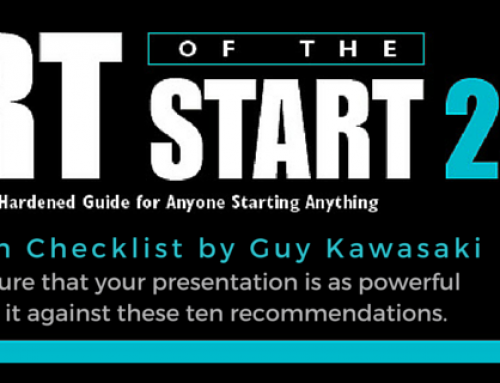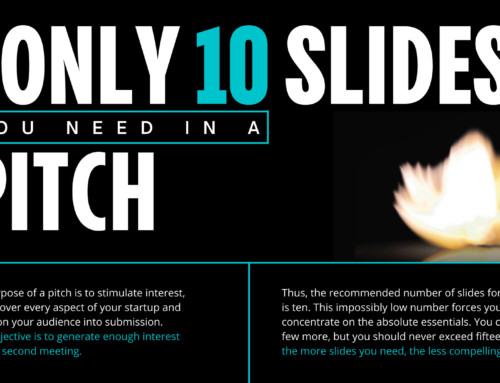There was such a positive response to the speaking tips of Doug Lawrence (email) that I asked him for more stuff. Taking a cue from the fact that “Bite your tongue” was the most popular tip, here are more:
-
Warm-up with a towel. Singers often have to get their chops “up” in their hotel rooms before leaving for rehearsals or performances. They do this by screaming and yelling into a towel.
-
Just say “Whoooo!” One of the best ways to get a voice ready to talk or sing is to make a siren sound on “whoooo” from the lowest pitch you can make to the highest and back again. Repeat it several times. This obnoxious sound thins your vocal cords and makes them more supple for easy speaking or singing.
-
Flutter your lips. Blowing a pitch—any pitch—through your lips to make them flutter will loosen up your articulators: the tongue, lips, and throat muscles. When your voice is tired and husky, and you’re afraid you can’t go on—give this a shot. It will work wonders.
-
Eat light, eat protein. If you have to eat before a big presentation (singers prefer going in lean and mean), eat stuff that gives you energy, not a cheap high like carbs. Singers always party after the show!
-
Allocate three hours to wake up. Singers often take a nap in the afternoon before they perform, but they always allow at least three hours to get their brain and voice back. Getting to a wakeful state takes a lot longer than just putting your clothes on.
-
Skip the tea. Tea is an astringent and will close your voice down. Drink hot water instead—it keeps your voice supple as a baby’s cheeks (either set).
-
Leave your jaw out of it. If you use your jaw to speak, you will exhaust your voice. Jaws don’t sing, and they don’t speak. Don’t try to over-form your words by chewing them because you’ll be outrageously tired within a few minutes. Use your articulators (tongue and teeth) and leave your jaw for a nice meal after you speak.
-
Don’t overwhelm the audience. Be entertaining but use moments of silence, soft speech, and slow cadence. Any performer will tell you the trick to a really great performance is to make the audience come to you. The more you go after them, the more you push them away. When people watch Steve Jobs, they think they know what he’s going to do, but he titillates them until they can barely stand it and makes the audience come crawling to him.





I’m not shure about advice no 7. I don’t know much about english language, but in polish if you try to articulate vowel you shoud use jaw and mouth. Off course if you are preforming on stage you wont to chew words, but while training you must concentrate on every sound, puting all your resonators in proper positions including jaw.
And advice form me: don’t forget to use your diaphragm. it’s powerfull tool while speaking
Mostly great advice!
On sirens, they tend to be more effective with the ‘ng’ sound (ie closed throat, open mouth, humming).
@kazik: I think what he’s saying is that the jaw should be completely relaxed. This is absolutely right – it’s something singers find very difficult to do, but it is crucial if you are to avoid a tightening of your larynx, which is very unhealthy and can really affect your vocal tone. Many singers tense their jaw, particularly for high notes, because it feels like it helps, but it doesn’t. Use your tongue rather than jaw to make a sound wherever possible helps to keep it relaxed.
Great advice for presentations. When on my way to a speaking event, I use the drive time to sing in order to warm up my voice. I sing scales (as in do, re, mi), with the songs on the radio, and sometimes songs that I happen to know. In any case, it’s energizing and warms up my voice. I only do this for a short while, however, because I don’t want to overdo it before the engagement.
Monday Links
How young non-Christians think about Christianity. Check it.
Stanley and 3 questions about the church impacting culture. Check it.
What is driving you and your organization? Check it.
Some more great thoughts on speaking via Guy Kawasakis …
That 8th point is very difficult Guy, easy to say but when you are hell bent on delivering a message… not dominating the audience when you are normally “above” them on the podium and introduced as either an expert or up-and-coming younger then most of the crowd who they look up to for advice… TOUGH! I find humor helps a tremendous amount as well.
Jon
Guy, are some of these getting into the realm of wearing the same lucky socks? As in confidence boosters, repeated,like the feather that Dumbo holds to fly? Maybe a couple of these, perhaps?
Don’t get me wrong; I’ve been loving your posts on improving presentations, passing them on to students and on my blog. And on this one the last point is golden.
Of course if it is like Dumbo’s feather, well, he did fly.
Tim
thanks for the advices! i’m a very young professor and it’s not easy stand in front of an older audience to “teach” them…anyway I used your advices last time and it works great!! thank you very much. Greets from Caracas, Venezuela
Using Silence in Conversation and Negotiation
Guy Kawasaki’s latest blog post, 8 more ways to improve presentations, includes a very interesting eighth and last point that reminded me this morning of something I was taught, as an American doing business in Japan, about using silence as
Interesting and funny too, esp the pictures. It make me laugh. Thumbs up!
There is another way one can “calm” yourself down before public speaking. That is to use the visualization to view yourself as absolutely comfortable speaker
It is quite a long technique. I have updated in my blog for your reading
http://secretofunlimitedprosperity.com/16/law-of-attraction-the-secret-of-generating-positive-energy-vibration-in-three-common-challenges/
Cheers
Karen
I suppose one could invest the time to practice all of these things in order to perfect their presentation skills to the disinterested, but they would be far better off spending that time building cashflow. All of this presentation advice that gets tossed around the Net incessantly reminds me of the pre-dotcom crash era’s focus on perfecting one’s “elevator pitch”. Suckers would spend $500 taking workshops on perfecting their 15 second elevator pitches. They really believed that the answer to VC financing lay in button-holing a VC and doing a 15 second pitch.
Listen, if someone is interested in your business, it will be because it has actual sales to bona fide paying customers. In that case, they will arrange to sit down with you to ask buying questions.
Focus on building sales rather than on pitching to groups of alleged investors who rarely invest and often charge you a substantial fee for the privilege of pitching their members.
Money talks (as in sales), bullshit walks.
すごいスピーチをするには?(パート2)
先日ご紹介した「すごいスピーチをするには?」。Guy Kawsakiさんが歌手…
Nice post! I’m also not shure about advice no 7. ;)
@Peter
You’re missing the point. The post is about giving presentations per se (lectures, meetings, etc), not just pitching ventures.
Doug Lawrence makes good points about getting the voice and mind ready, provided you have time to get ready. Many road warriors don’t have the luxury of time. No time to get the voice and mind ready and sometimes no time to get the audio/visual gear ready, either. The tension-o-meter pegs out when the projector and computer go on strike. A quick situational OODA loop (Observe, Orient, Decide, Act) is often needed to salvage the talk and to get oneself back into the game. This is where Lawrence’s Point #8 comes into play. What is better? Spending valuable time nerding-out in front of everyone while trying to get the gear to work OR using your misfortune to get the audience on your side as you shift gears into a more extemporaneous style talk? The folks in the audience are judging you as much as they are judging the material. Answer: if the gear won’t work, winging it is better than publically melting-down while fiddling with the electronics.
Another Point #8 aspect is having the audience get involved through questions or providing comments. It makes the session less of a speaker “downloading” affair and more of an interactive participative session. At the very least, the audience usually leaves with a positive impression of the speaker. Believe me, a positive impression will be more valuable over time than the slide material. Furthermore, folks have a hard time remembering the blah, blah download stuff but they have no difficulty remembering how you reacted to the question the curly-haired fellow asked and how you smiled and said, “that is an good question!” and then went into an interesting story that related to the curly-haired fellow’s comment. Yes, you are giving a performance and audience participation (listening, questioning, emoting, staying awake, etc.) is what you are seeking.
I chuckled at Lawrence’s comment about performers carbo-loading/elating after their performance. Yep, the brain sure craves the carbs after a well received and peppy (participative) talk.
missingpoints said: You’re missing the point.
Well, the Categories list along the right-hand margin gave me the impression this was a blog about entrepreneurship and raising VC.
Oh well.
Thanks for your comments on my tips to Guy. I’m singing in Salzburg this week, but wanted to comment on #7. The muscles that make the jaw work are very strong. If you over-work them to get your points across, you can tire every other muscle involved in the process of speaking. Just be careful. Modern sound equipment has undone a lot of old-school elecution practices. Löve my work! Doug
Speak now, or forever hold your tongue…
Today’s Notable Quote: There was such a positive response to the speaking tips of Doug Lawrence (email) that I asked him for more stuff. Taking a cue from the fact that “Bite your tongue” was the most popular tip, here
Speak now, or forever hold your tongue…
Today’s Notable Quote: There was such a positive response to the speaking tips of Doug Lawrence (email) that I asked him for more stuff. Taking a cue from the fact that “Bite your tongue” was the most popular tip, here
This is good advice for people who are scared of public speaking or simply don’t have the experience doing it. I think the real problem is how to actually architect a presentation. My least favorite thing to hear is people complaining that they wish they had more time. How about you make more use of the time you have?
I actually wrote an article entitled “More Schmooze, Less Snooze: How to Deliver ‘The Most Talked About’ Conference Session.” Check it out. Gives more “how to” advice for panel discussions (not single presentations).
http://www.sparkminute.com/?p=174
Me and my buddies Guy andDoug
Okay, so here we go again. For a first post this seems like an old excercise and before I get into the nitty gritty Id like to thank you if you are coming over from the BCOM blog which certainly had its hour of glory, and Id like to thank…
To add, avoid drinking coffee (it makes you speak faster), avoid drinking soda pop (makes you burp), and avoid milk-based products (makes you smack your lips). Water is best.
Although, as we know, it helps to break the rules every so often. I usually pop open a can of Red Bull at the start of my presentation and take a few sips as I build momentum. The crowd enjoys it and if you ever make a remark that’s off color, you can blame it on the Red Bull…. :)
Tongue in cheek: the art of presentation
Do you suffer from a “presentension”? It is a condition that tends to manifest itself when you are about to give a speech in front of a group. When all eyes are on you, you begin feeling the warmth of
Thanks for the tips.
Lingipuru 070628: oksjonid, esinemisoskus, parimad töökohad…
The magic of auctions Seth Godin kirjutab, miks inimesed oksjonitel rohkem maksavad, kui nad esmalt plaanisid.
5 Powerful Hacks to Immediately Improve Your Presentations kuidas oma esinemisoskus…
Adding a little “growl” to one’s voice gives a sense of authority.
Push air when speaking from diaphram.
Not only for singers the tips are , I believe , but for all who want to enbetter the way they speak and their life styles in general . Thanks for the tips .